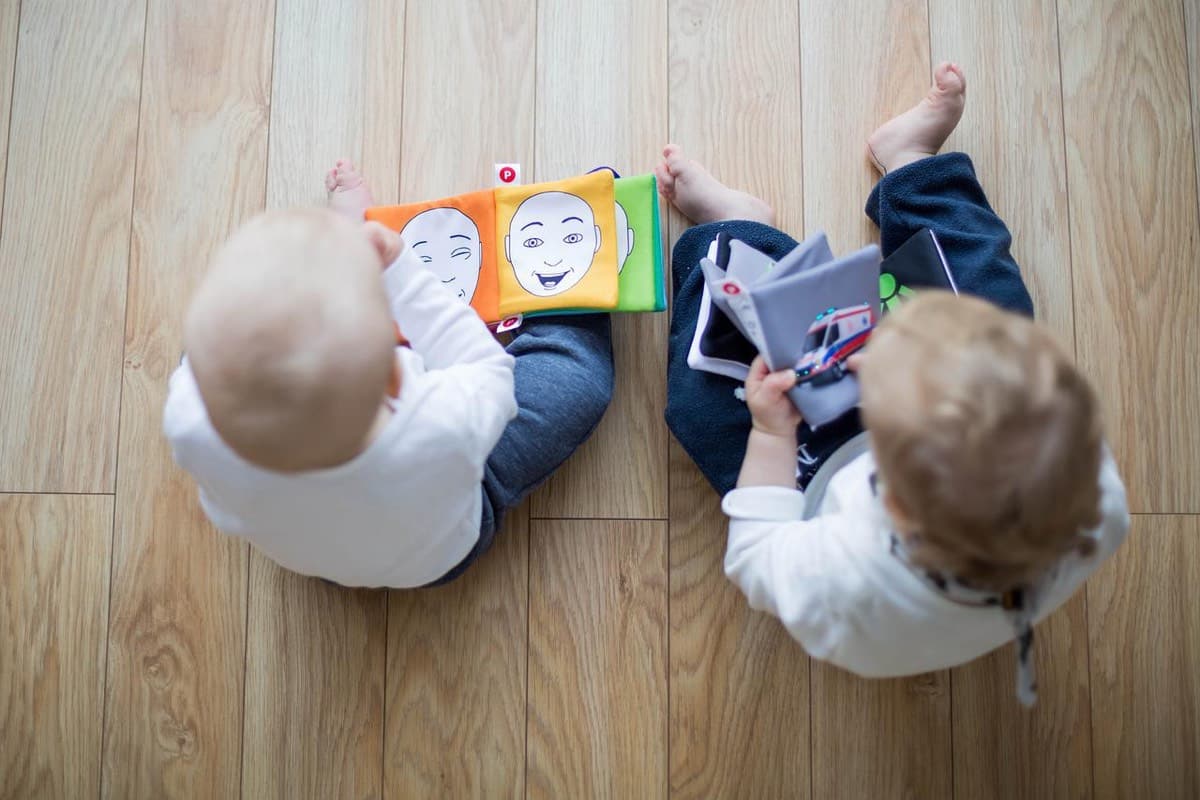
Cognitive development refers to how a person perceives, thinks about, and gains understanding of their world through the interaction of genetic and learned factors. Areas of cognitive development include information processing, intelligence, reasoning, language development, and memory.
It was once believed that babies did not have the ability to think or form complex ideas. That is, they were thought to remain without cognition until they learned in language. Now it is known that babies are aware of their surroundings and are interested in exploring from the moment they are born. From birth, babies begin to learn actively. They collect, classify and process the information around them, using the data to develop perceptual and thinking skills.
Jean Piaget's Theory of Cognitive Development
Jean Piaget's theory of cognitive development suggests that children go through four different stages of learning. His theory focuses not only on understanding how children acquire knowledge, but also on understanding the nature of intelligence. Piaget's stages are:
- Sensorimotor stage, from birth to 2 years.
- Preoperational stage, from 2 years to 7 years.
- Concrete operational stage, ranging from 7 to 11 years.
- Formal operational stage, which begins from the age of 12.
Piaget believed that children take an active role in the learning process., acting like little scientists as they conduct experiments, make observations, and learn about the world. As children interact with the world around them, they continually add new knowledge, build on existing knowledge, and adapt previously held ideas to accommodate new information.
The sensorimotor stage

During this very early stage of cognitive development, infants and young children acquire knowledge through sensory experiences and the manipulation of objects. All of a child's experience in the earliest period of this stage occurs through basic reflexes, senses, and motor responses.
El cognitive development that occurs during this period it takes place in a relatively short time and involves a great deal of growth. Children not only learn to perform physical actions such as crawling and walking, they also learn a lot about the language of the people they interact with.
The preoperational stage
The foundations of language development may have been laid during the earlier stage, but the appearance of language is one of the main milestones of the preoperational stage development. At this stage, children learn through pretend play, but still struggle with logic and other people's point of view. They also often have difficulty grasping the idea of constancy.
Children become much more adept at pretend play during this stage of development, but continue to think very concretely about the world around them. They begin to think symbolically and learn to use words and pictures to represent objects. They tend to be self-centered and strive to see things from the perspective of others.
The specific operational stage

Although children are still very concrete and literal in their thinking at this point in development, they become much more adept at using logic. The self-centeredness of the earlier stage begins to fade as children learn to think about how other people might view a situation. Although thinking becomes much more logical during the concrete operating state, it can also be very rigid. Children at this point in development tend to have difficulty with abstract and hypothetical concepts.
During this stage, children also they become less self-centered and begin to think about how other people might think and feel. Children in the concrete operational stage also begin to understand that their thoughts are unique to them and that not everyone else necessarily shares their thoughts, feelings, and opinions.
The formal operational stage
The final stage of Piaget's theory involves an increase in logic, ability to use deductive reasoning and understanding of abstract ideas. At this point, teens and young adults become able to see multiple potential solutions to problems and think more scientifically about the world around them. The ability to think about abstract ideas and situations is the key hallmark of the formal operational stage of cognitive development. The ability to systematically plan for the future and reason about what-if situations are also critical skills that emerge during this stage.